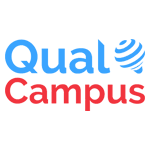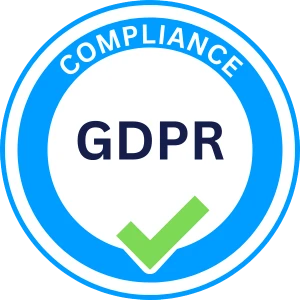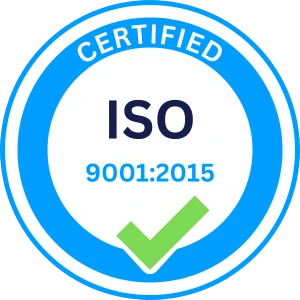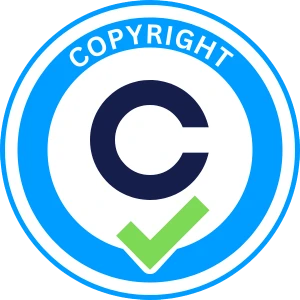In today’s rapidly evolving educational landscape, institutions of all sizes are seeking ways to improve efficiency, streamline processes, and enhance communication with students, parents, and faculty. One powerful tool that has emerged to meet these needs is Customer Relationship Management (CRM) software tailored for education.
In this comprehensive guide, we’ll explore the concept of CRM in education, its significance, and why your institution might need it. We’ll also delve into the benefits and features of educational CRMs and provide insights on choosing the right CRM solution for your institute. Additionally, we’ll highlight how QualCampus, an all-in-one ERP, LMS, and CRM, can be a game-changer for your educational institution.
What is CRM?
Customer Relationship Management, or CRM, is a technology-driven strategy designed to manage interactions with potential and existing customers. It involves utilizing data analysis and various tools to create a seamless, customer-centric experience.
Initially, CRM was conceived as a marketing and sales tool, used primarily by businesses to maintain relationships with customers, track sales leads, and provide personalized service. Over time, CRM has found a home in the educational sector, adapting to meet the unique needs of schools, colleges, and universities.
What is Educational CRM?
Educational CRM, much like its business counterpart, focuses on nurturing and maintaining relationships, but in this context, it pertains to relationships with students, parents, faculty, and other stakeholders in an educational institution.
Educational CRM goes beyond mere management of contacts and communication. It encompasses various aspects, including student recruitment, admissions, retention, and engagement. It’s an invaluable tool in creating a cohesive educational ecosystem.
Do I Need a CRM for My Institute?
With the ever-increasing complexity and competition in the education sector, institutes face several challenges, including student enrollment and retention, effective communication, and data management. An educational CRM can address these challenges.
Benefits of CRM in Education
Before diving into the specifics, it’s important to understand the many benefits of implementing a CRM in your educational institute.
Here are some compelling reasons to consider:
What Are the Benefits of Using a CRM for Education?
- Improved Student Recruitment
Educational CRMs can help streamline the enrollment process, making it easier for prospective students to apply and for admissions teams to evaluate applications efficiently. - Enhanced Student Engagement
Effective communication and personalized interactions are at the core of CRM in education. Engaging students and keeping them connected to your institution has never been easier. - Data-Driven Decision-Making
A CRM system collects and analyzes data, enabling administrators to make informed decisions about admissions, curriculum development, and resource allocation. - Efficient Resource Management
Optimize resource allocation, from faculty assignments to classroom scheduling, to ensure that your institution operates at its full potential. - Strong Alumni Relationships
CRM software helps maintain lifelong relationships with alumni, fostering goodwill, support, and potential donations.

What Are the Main Features of a CRM for Education?
- Lead Management
Easily capture, track, and manage prospective student leads and applicants, allowing for streamlined communication and follow-ups. - Student Profiles
Create comprehensive student profiles with academic records, contact information, and other essential details for a holistic view of your student body. - Communication Tools
Send personalized emails, SMS, and notifications to students, parents, and faculty—Automate communication for efficient engagement. - Analytics and Reporting
Generate reports and dashboards that provide insights into student enrollment, engagement, and performance. Use this data for informed decision-making. - Document Management
Centralize and manage essential documents, such as transcripts, applications, and financial records.
What to Look into a CRM While Choosing for Your Institute
- Scalability
Ensure the CRM can adapt to your institute’s growth, accommodating more students, faculty, and features as your institution expands. - Integration
Look for a CRM solution that seamlessly integrates with your existing software. - User-Friendly Interface
Ease of use is crucial. The CRM should be intuitive for faculty and staff members, ensuring minimal training time. - Customization
Choose a CRM that can be tailored to your institution’s specific needs. Customization options are essential for optimizing the software for your unique processes. - Support and Training
Adequate support and training ensure your team can use the CRM to its full potential.
QualCampus is the Best Choice for Your Institute
QualCampus stands out as a comprehensive, all-in-one solution for educational institutions, offering an integrated ERP, LMS, and CRM system.
Here's how QualCampus can revolutionize your institution:
- Seamless Integration
QualCampus seamlessly integrates ERP, LMS, and CRM functionalities, providing a unified platform for your institution. This integration ensures that data flows effortlessly, saving time and reducing errors. - Student-Centric Approach
With QualCampus, you can provide a student-centric experience. From admission to graduation, students are at the heart of every interaction, ensuring high engagement and satisfaction. - Powerful Analytics
The platform offers robust analytics and reporting tools, enabling data-driven decision-making for your institution. Monitor student performance, enrollment trends, and more. - Automation
QualCampus automates repetitive tasks, freeing up valuable staff time to focus on strategic initiatives. - Ongoing Support
QualCampus provides extensive training and support to ensure your institution can leverage all the features effectively.
conclusion:
Customer Relationship Management (CRM) in education is a powerful tool to address the complex challenges faced by educational institutions today. With the right CRM, you can streamline operations, improve student engagement, and make data-driven decisions.
QualCampus, an all-in-one ERP, LMS, and CRM solution, offers a comprehensive platform to help your institution thrive in the modern educational landscape. By choosing QualCampus, you can optimize your processes, enhance relationships with students and stakeholders, and ensure a bright future for your educational institution.








